Research Area: Agriculture Transformation, Food Systems & Nutrition Transition
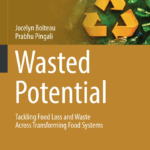
Wasted Potential: Tackling Food Loss and Waste Across Transforming Food Systems
As the world seeks to achieve zero hunger and mitigate the environmental degradation tied to food production and consumption, reducing food loss and waste is a critical challenge for policymakers in developed and developing countries alike. Wasted Potential: Tackling Food Loss and Waste Across Transforming...

Promoting Agricultural Diversification and Climate Resiliency in India
This special policy brief estimates the potential reduction in methane gas emissions from the diversification of agriculture in Chhattisgarh, India. The analysis provides policymakers with information regarding pathways for combatting climate change by reducing agricultural emissions, making Chhattisgarh’s agricultural system more resilient to the effects...
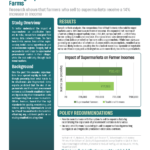
Making Supermarkets Profitable for India’s Small Farms
This policy brief presents the results of a study examining the impact of supermarkets on smallholder farmers in India. Using field survey data collected from 795 farm households across four states representing India’s varied agroclimatic and socioeconomic regions, researchers found that farmers who sold to...

Reducing the True Cost of Food-Based Safety Nets: Evidence from India’s Subsidized Food Program
Abstract Public procurement of food plays a pivotal role in determining the production and consumption of various food items. This is particularly true for staple grains in countries such as India, where the government procures over 40 percent of rice and wheat. This grain is...
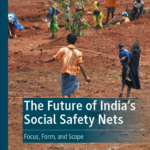
The Future of India’s Social Safety Nets: Focus, Form, and Scope
India’s rapid economic growth and wealth creation in the past three decades have been marred by its persistently high levels of poverty and child undernutrition, along with rising inequality. Social safety nets, for those left behind, have therefore gained in eminence as a redistributive mechanism....

Food, Agriculture, and Nutrition in South Asia: Building Healthy, Sustainable Food Systems
TCI’s report on Food, Agriculture, and Nutrition in South Asia: Building Healthy, Sustainable Food Systems (FAN-SA) examines trends in nutrition, agriculture, and food consumption in Afghanistan, Bangladesh, Bhutan, India, Maldives, Nepal, Pakistan, and Sri Lanka, offering a range of policy instruments for improving nutrition outcomes...
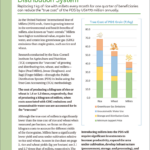
Promoting Millets in the Public Distribution System
This special policy brief provides cost-saving estimates associated with the potential introduction of millets into India’s Public Distribution System (PDS), which provides subsidized food to more than 800 million people. This analysis provides policymakers and other stakeholders with valuable information that can be used to...
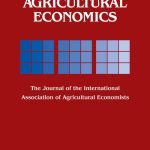
Food Systems Transformation in Asia – A Brief Economic History
Abstract Asia’s food systems have undergone rapid economic and socio-cultural transformations in the past 60 years. During the period, almost all the countries in the region eradicated famines and achieved food self-sufficiency and heterogeneous levels of poverty reduction. Food system transformation in Asian countries has...

Indian Obesity Varies by Gender, Rural/Urban Divide
This policy brief presents the findings of a TCI study examining differences in the incidence of overweight within India according to biological, technological, and environmental factors. The study shows that overweight and obesity rates are tied to such variables as gender and the level of...
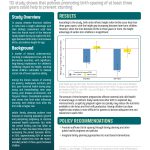
To Reduce Stunting, Space Out Births
This policy brief presents the findings of a TCI study exploring the linkages between birth order, time between births, and relative height-for-age. According to the study, birth order affects height when births occur less than three years apart, with the height gap increasing between later-born...

